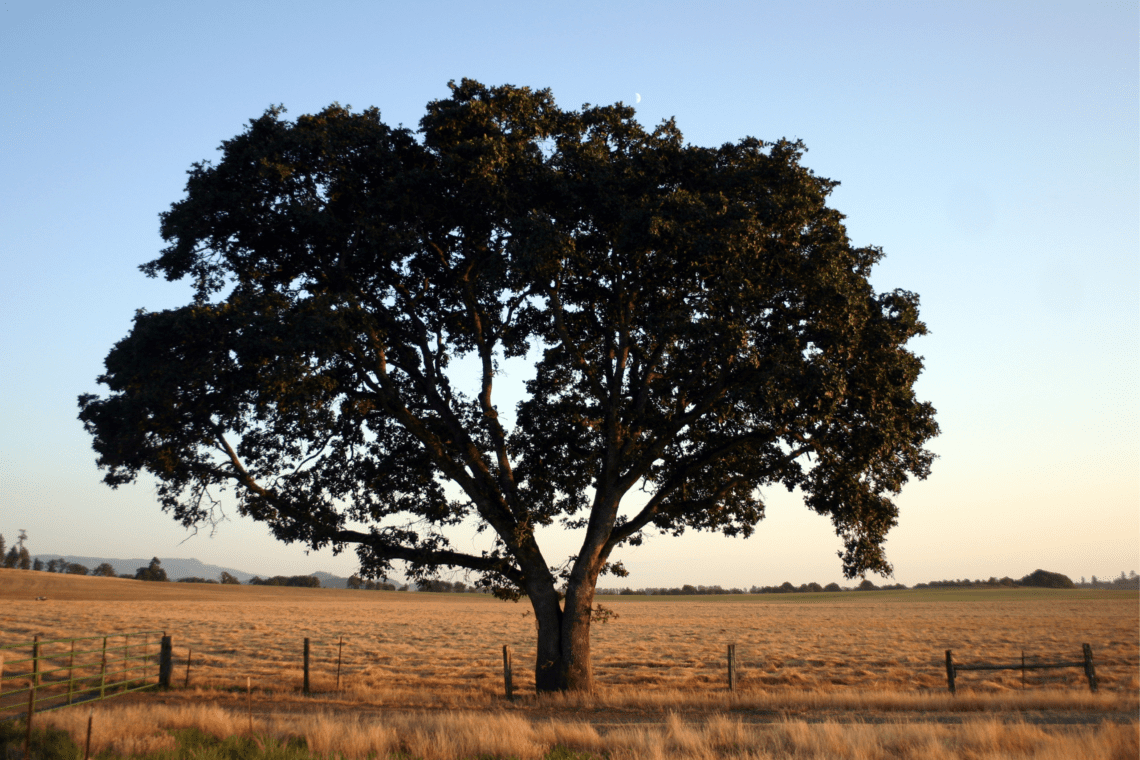
What Types of Trees to Plant on Your Ranch
If you want to plant trees on your property to improve the appearance, add some privacy, or attract local wildlife there are many species that make excellent additions to your landscape. Here we look at what types of trees are suited for specific purposes and a few to avoid near pastures.
What Trees Are Best For Privacy Along a Rural Street?
If you want to add some privacy to your land here are the best choices:
- Live Oak: This beautiful evergreen has dense foliage and grows at a moderate rate, so you don’t have to wait too long to see the gray/green foliage provide coverage.
- Japanese Blueberry: This tree loves the heat and does well in central Texas. It is low maintenance with lovely deep green foliage and dense branches. They create the perfect property line to block out the road.
- Southern Magnolia: This Southwest favorite is large and green with dense growth and creamy white flowers that are quite fragrant through the summer and into the fall.
- Camphor: If you want coverage fast, camphor quickly provides privacy with wide-spreading foliage. They stay green throughout the year with a lovely fragrance that also repels mosquitos.
Evergreens are always best to create privacy as they maintain their dense foliage throughout the year.
What Trees Do Best In Rocky Soil?
Choosing native trees for the area is the best way to tackle rocky soil. Some excellent choices include:
- Post Oak: This is an excellent choice as it is resistant to oak wilt. It grows to 40 to 50 feet with a lovely oval crown and a trunk ranging from grays to reddish-brown.
- Bur Oak: This oak is also resistant to oak wilt with shade-giving canopies that reach as wide as 80 feet.
- Chinkapin Oak: This oak is known for its distinctly large leaves growing up to 8 inches long and almost five inches wide.
- Lacey Oak: If you want a smaller oak, this is a medium-sized tree with lovely bluish leaves.
- Cedar Elm: When it comes to fall color, this tree offers a yellow to orange leaf and has drooping branches that create a rounded crown.
- Texas Redbud: This very small tree has brilliant clusters of flowers in early spring for a lovely show that adds color to your ranch. The tree also has a pretty display in the fall when leaves turn yellow or red leaving behind reddish-purple seedpods in the winter.
- Mexican Plum: Another small tree with a lovely show of blossoms, this tree has white blooms in early spring giving way to small, tart plums.
These are all lovely trees that add color and shade to your property.
Trees To Avoid?
Although we have mentioned several varieties of oak trees here, keep in mind these trees should not be planted in areas where cattle, sheep or horses roam. The tree’s young green leaves as well as the acorns cause poisoning leading to issues with the kidneys and liver.
Cherry laurel or chokecherry trees are often used for windbreak and privacy on farms and ranches. However, they should be kept away from pastures as they are highly toxic, and death is almost immediate once ingested by livestock.
What Trees Attract Wildlife?
If you’d like to enjoy watching local wildlife from honey bees to deer, these trees attract all kinds of critters:
- Caroline Buckthorn: This is a tree that has it all. It offers fruit that attracts wildlife to your property, has pretty bright green foliage, and a burst of bright yellow, orange or red leaves in the fall.
- Desert Willow: This elegant tree is a draw for lovely hummingbirds thanks to its trumpet-shaped lavender and pink flowers. The tree also emits a pleasing fragrance.
- Anaqua: The nectar of the tree attracts wildlife with lovely white flower clusters giving way to fleshy fruit.
- Gum Bemelia: If you’d like to support your local honey bee population this tree has flowers bees love. However, it also attracts white-tailed deer and local birds who love the leaves and fruit.
The fruit and flowers of these trees offer food and nutrients that attract wildlife to your ranch.
Interested in buying or selling property or land? Turn to the experts to do the hard work for you. Contact Ruple Properties today to learn more.
